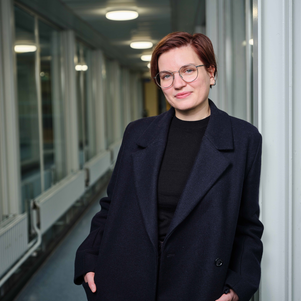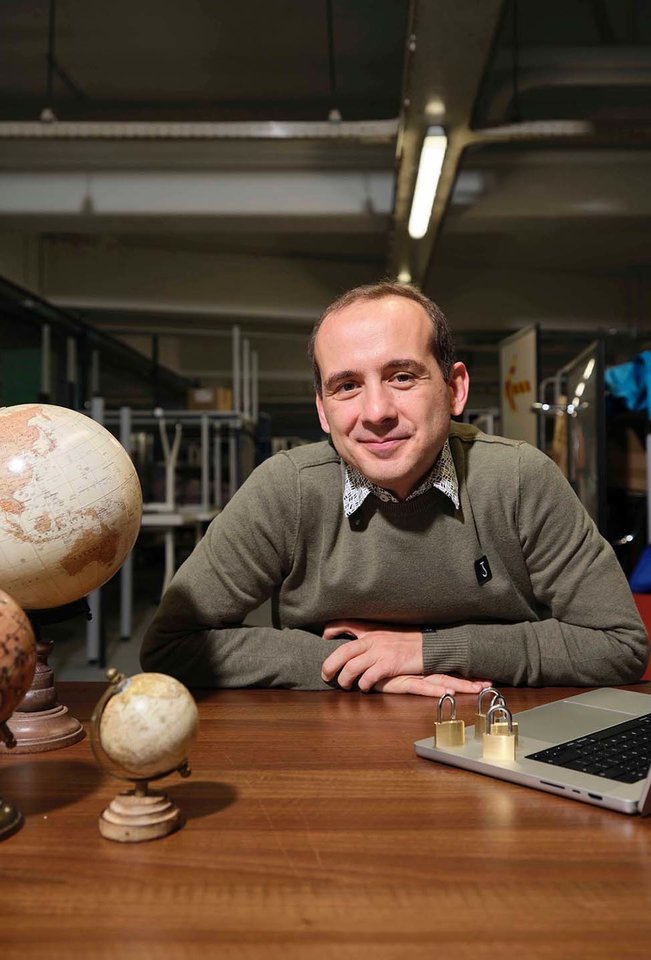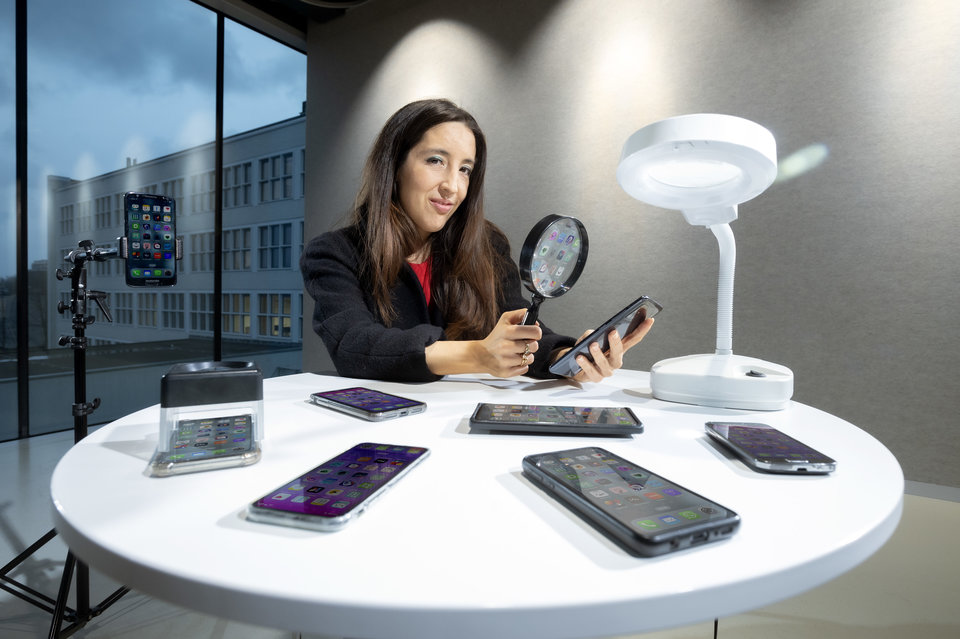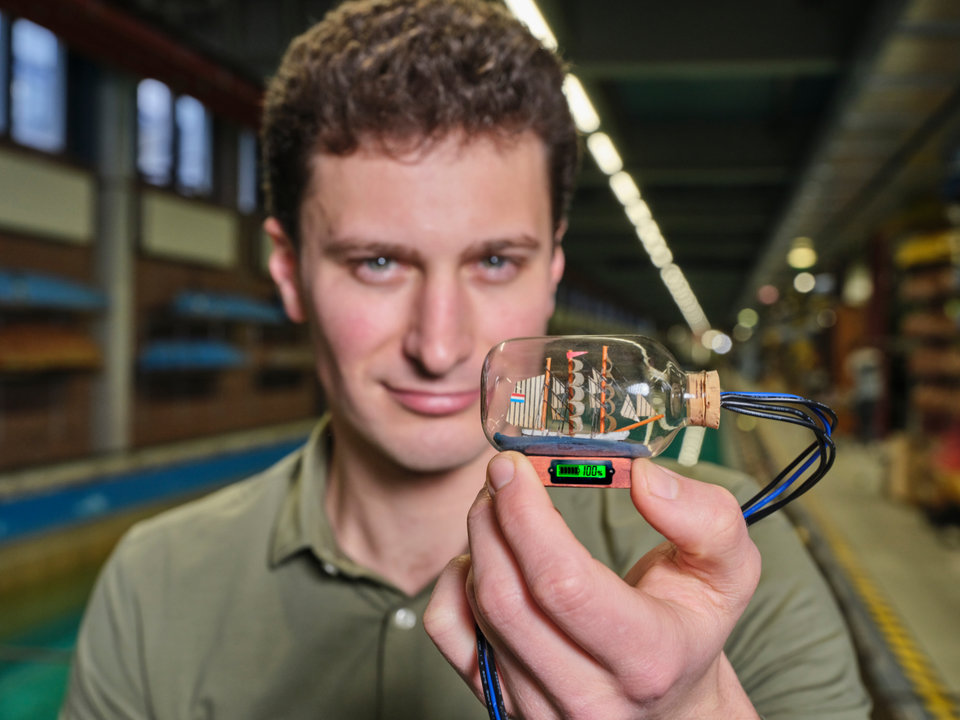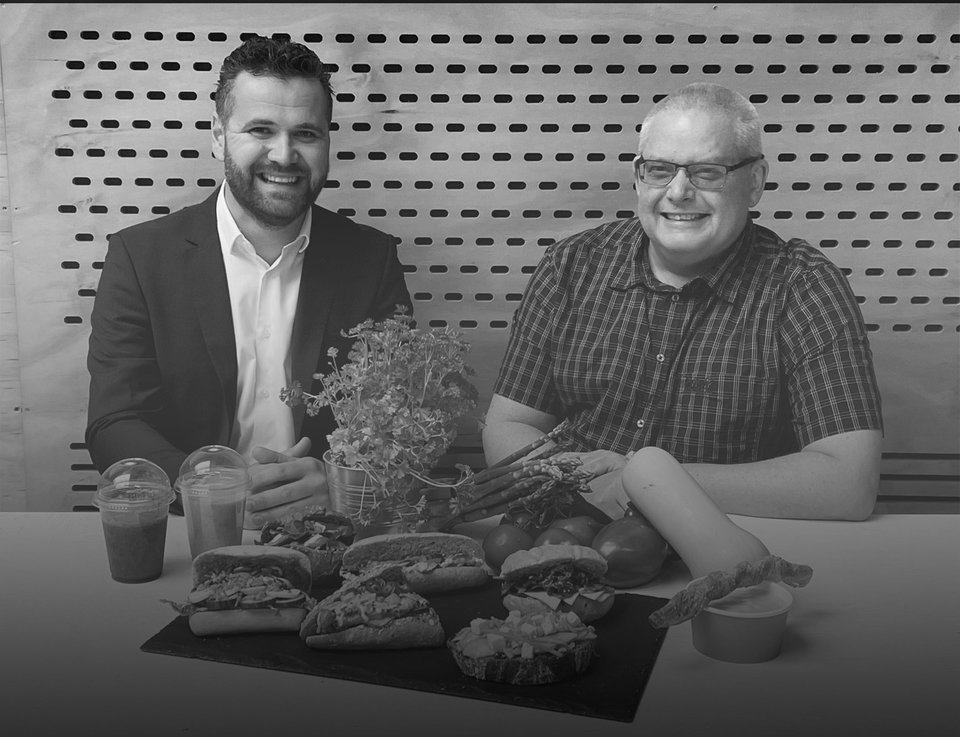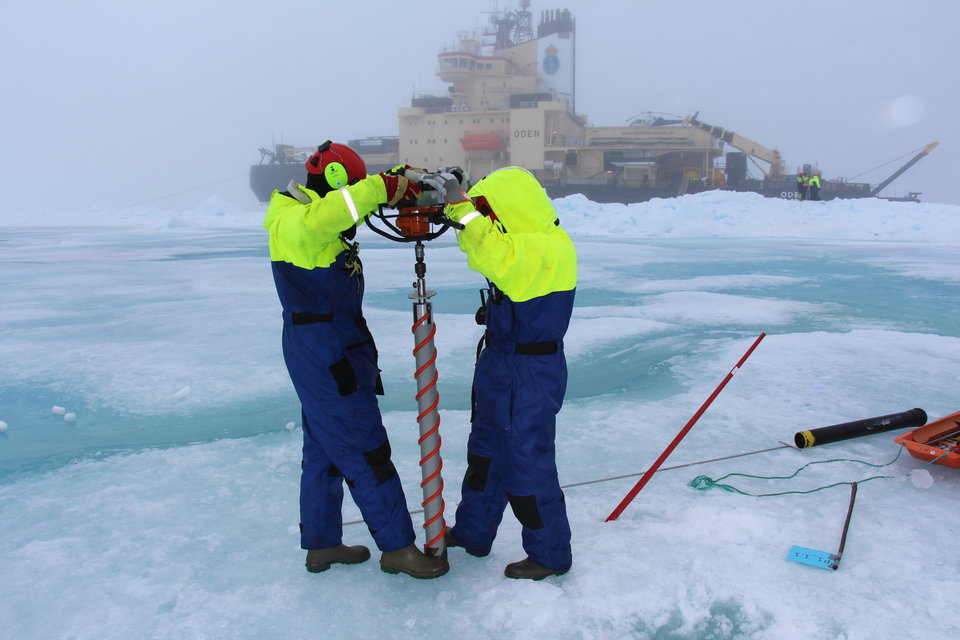Imagine if we could find an alternative to plastic by using a quantum computer and artificial intelligence, to help us decide on all the best ideas that chemists have? Eliška Greplová uses artificial intelligence in quantum computing, to help develop the next generation of quantum devices that will be able to tackle sustainability challenges.
“I am fascinated by how quantum systems can store information and perform computations,” says Greplová. “During my postdoctoral fellowship at ETH Zürich, I found that quantum devices pose some inherent challenges: no classical computer can simulate them – that’s the reason we build them in the first place. So how can we actually understand, control and verify what these quantum devices are doing?”
AI to eye the quantum computer
With her scientific group at TU Delft, Greplová brings artificial intelligence towards the application of quantum computers: “Simulating quantum computers is hard. Among other reasons, this is due to the difficulty of modelling noise at the quantum scale,” Greplová says. “With the help of AI and its impressive generalization power, we can extend traditional computational models to better describe and control current quantum hardware.”
Taking a look inside a quantum system by performing classical measurements can be really destructive for quantum calculations. Greplová realised artificial intelligence (AI) can help tackle this problem, which is a paradox similar to Schrödinger's Cat. “In this thought experiment, a cat is closed in with a radioactive isotope which might or might not kill the cat,” Greplová explains. “If we look into the box we collapse that state and we change the system. I realised that by ‘eyeing’ the output from the quantum computer with AI, we can at least get a better understanding: AI can translate the complex data into useful information while disturbing the quantum calculations less.”
Crowdsourcing sustainability ideas
During her postdoc time at ETH Zürich in Switzerland, Greplová achieved one of her first milestones: “Our group ran an experiment on a small quantum computer with the assistance of artificial intelligence. We usually need a team of experts to interpret the complex data for us. Now we discovered that this time-consuming preparation can be fully outsourced to AI: our AI algorithm helped us control the quantum device, made it do what we wanted it to do, then confirmed the result.”
What are Greplová’s ambitions? “What fascinates me is the application of quantum computing for sustainability questions. Imagine if we could discover a plastic alternative that naturally decomposes, by gathering all the different ideas that chemists have and putting them on the quantum cluster so it will find the best ones? I want to contribute to these overarching goals with AI. If we crowdsource the ideas around the world, we can solve these sustainability problems much faster.”
Scaling up quantum computing with AI
“This is where my research comes in: I want to get the quantum computers to the cloud with AI automation, and get access to users all around the world. By using AI we can do a fully automated control, readout and data interpretation of quantum computers. And unlike standard programming, AI tools are able to learn from the quantum data what kind of models are effective, making control of quantum computers more scalable.”
To get to the application phase, the researchers need to build customised AI techniques for quantum computers, which is a challenge because it is very complex work, Greplová explains: “This will require a quantum system with millions and millions of qubits – the building blocks of quantum computers which can be one’s and zero’s but also every state in between. To give you a sense of perspective: now we work with a system that holds a maximum of 50 qubits. My estimate is that we may be able to apply AI to large-scale quantum computers at the end of the 2020s.”
AI and physics: opposites attract
Another challenge in the field, says Greplová, is getting the scientific community around to using AI in quantum computing: “Artificial intelligence and physics are two opposite approaches, which I bring together in my research: in physics you reduce a complex problem to a simple model, while with artificial intelligence you try to learn something from tons and tons of data. For some people in the physics community it is hard to accept that AI will interpret their data properly. Especially in the beginning of my AI-oriented research, it was a challenge for me to get other physicists to embrace these methods: though they are starting to come around.”
Within TU Delft, Greplová works together with the group of Ronald Hanson at QuTech (a collaboration between TU Delft and TNO, ed.) on quantum internet applications. With Lieven Vandersypen and his team (also QuTech) she works on the Dutch Quantum Inspire, the first cloud-based quantum computer in Europe. Greplová: “The unique quantum ecosystem here is one of the reasons I came to the Netherlands." Outside of her scientific pursuits, Greplová is interested in the governance surrounding quantum technologies and participates in World Economic Forum activities. Greplová also co-founded Virtual Science Forum in 2019, a platform to make scientific events accessible to everyone.


